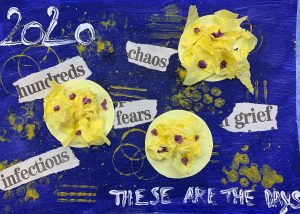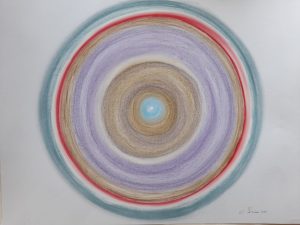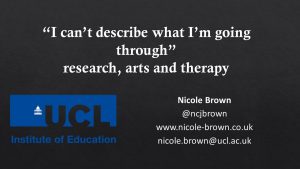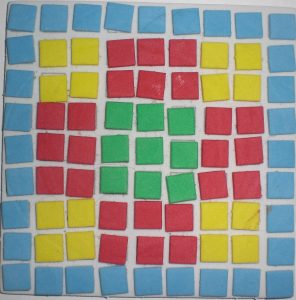
Creative output: “Just one more time…”
This is an excerpt of "Just one more time...", a fictionalised account of real-life experiences during the first year of the COVID19 pandemic.

Creative output: Participatory research: Full ethical approval
This poem about full ethical approval is the outcome of poetic inquiry and analysis within Embodied Inquiry from my research with academics.

Creative output: This is just to say
This is an example of an ethnographic poem, the output of poetic inquiry and analysis within Embodied Inquiry from my research with academics.

“I can’t describe what I’m going through”
This is my contribution to the RAI2018 conference in London "I can't describe what I'm going through - research, arts and therapy".

The Mosaic approach according to Clark and Moss
Alison Clark and Peter Moss developed their own way of carrying out research with children – the Mosaic approach. The idea behind the Mosaic approach is that researchers collect data through a wide range of means. These are what Clark and Moss consider "individual tiles". It is then the researcher's task to put these individual pieces together to form one big picture, just like many little tiles are formed into one big mosaic.

Epistemology
Methodology and methods are only part of the story of choosing a research framework. The way you go about collecting and interpreting data is strongly influenced by how you interpret knowledge and truth. This is about the epistemology. In simple terms, epistemology is the theory of knowledge and deals with how knowledge is gathered and from which sources. In research terms your view of the world and of knowledge strongly influences your interpretation of data and therefore your philosophical standpoint should be made clear from the beginning.
Sarah Pink: Doing Sensory Ethnography
Pink's understanding of ethnography is broader than that of a study relating to the culture or society of humans. Really, ethnography in Pink's view is a phenomenological study of life world and in the book she offers ways of accessing this life world through a range of channels. Pink suggests including the human senses at all levels of research. This book offers great justification for a less conventional approach to research; an approach where openness to what happens is paramount.